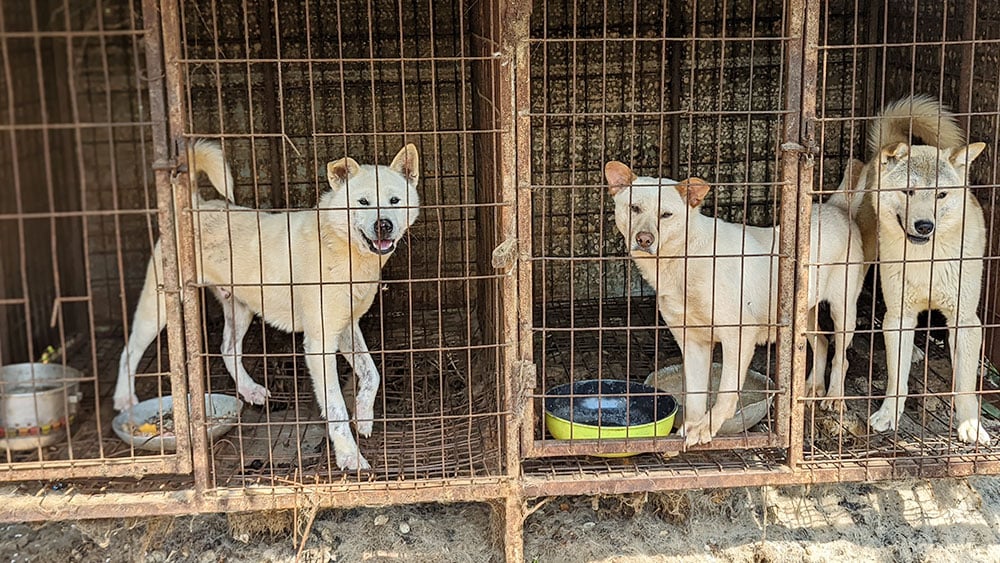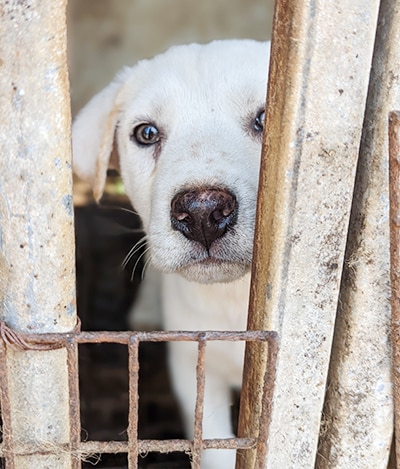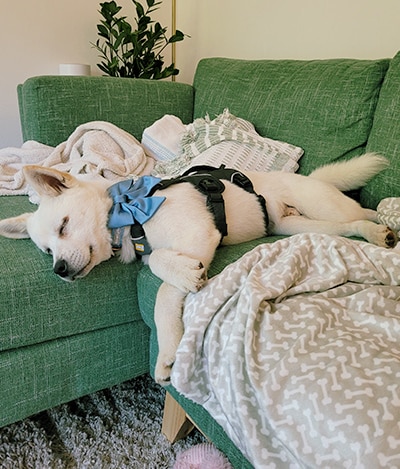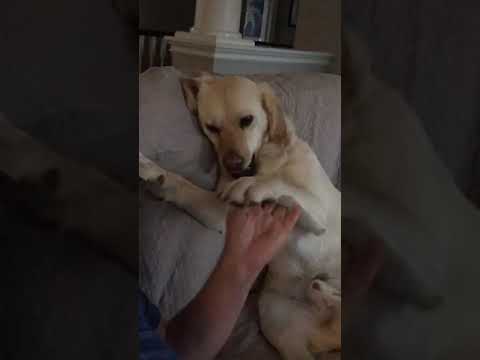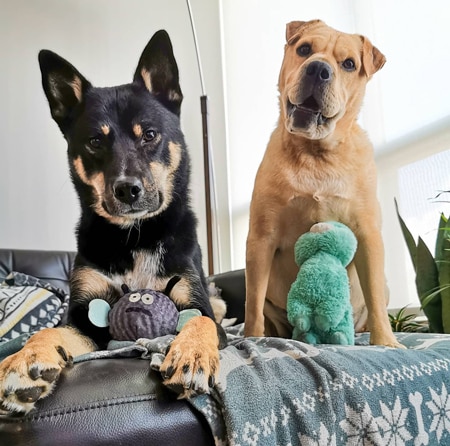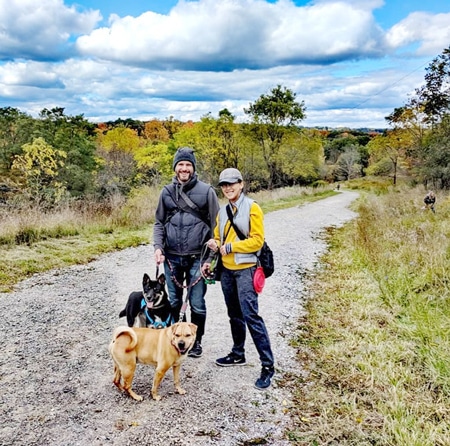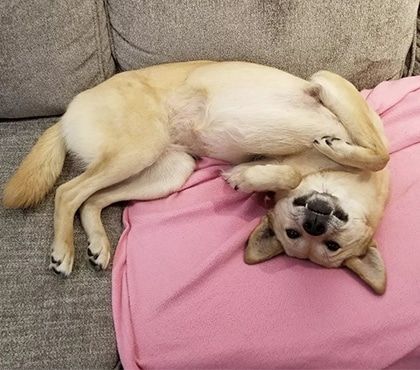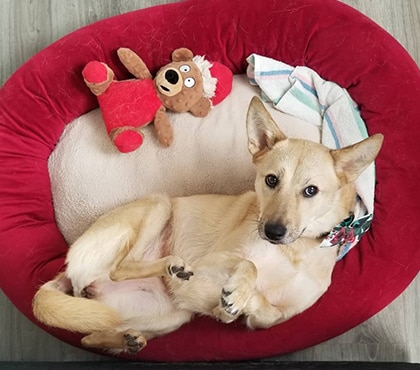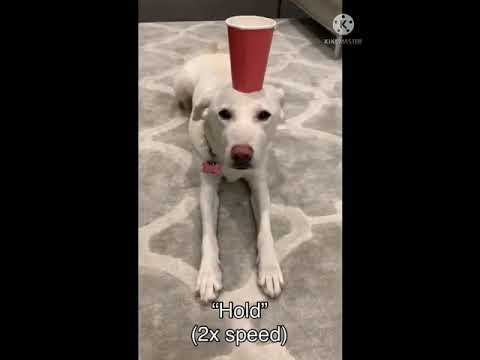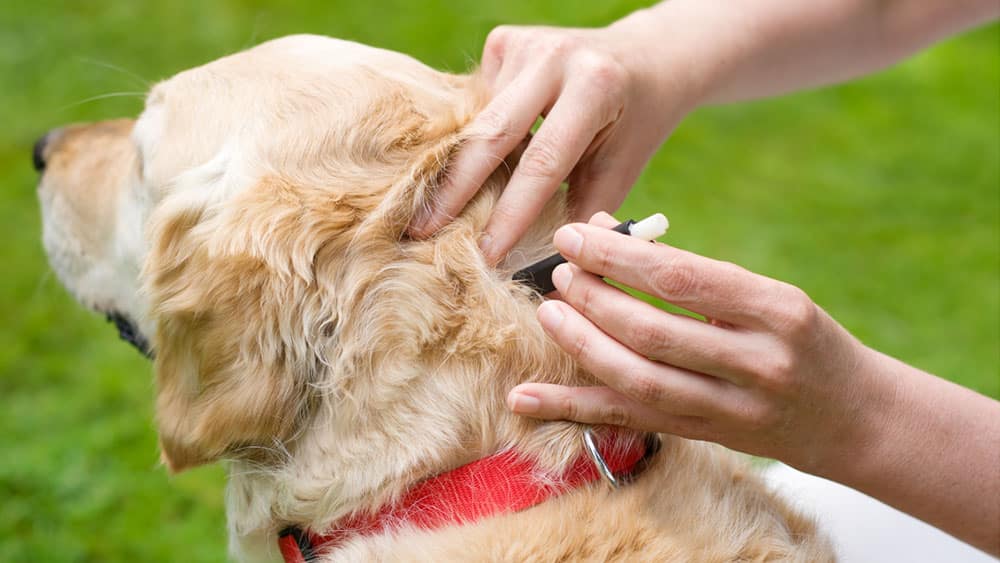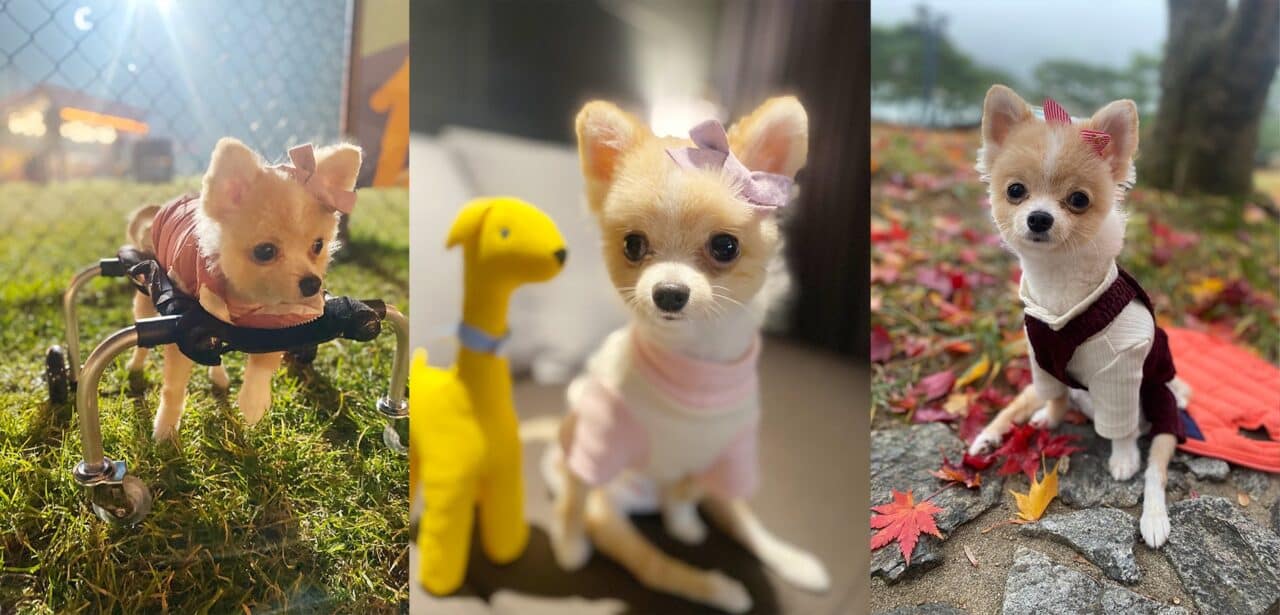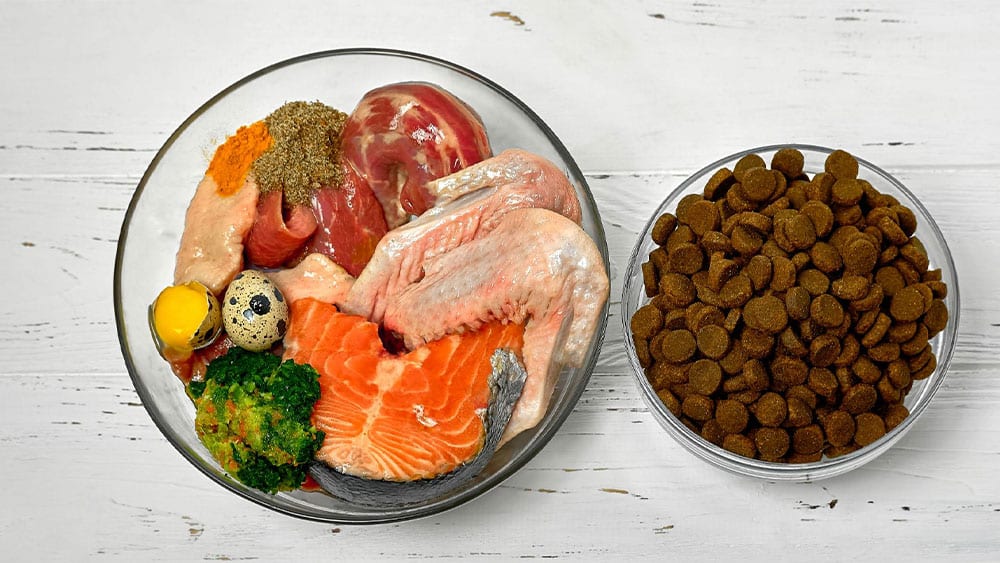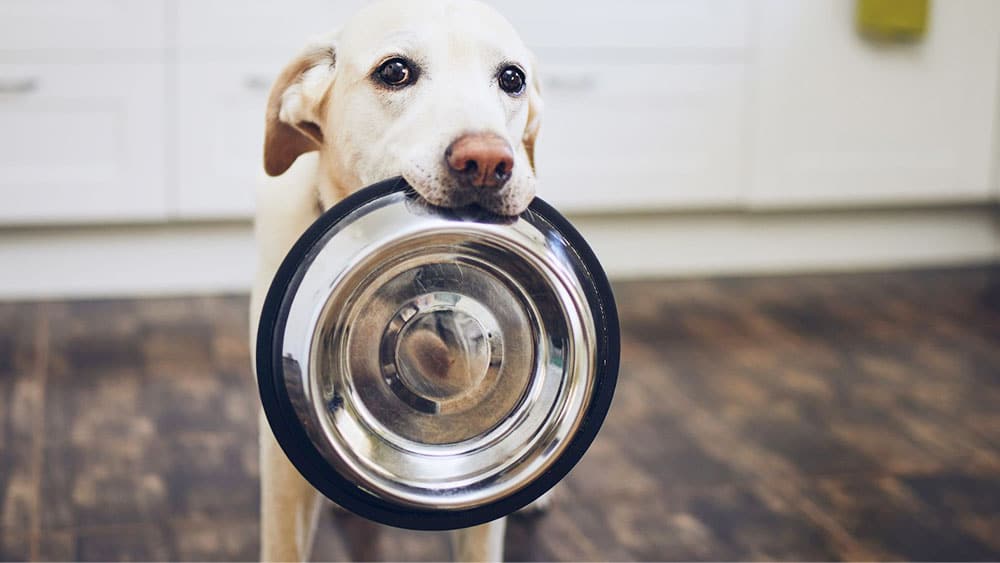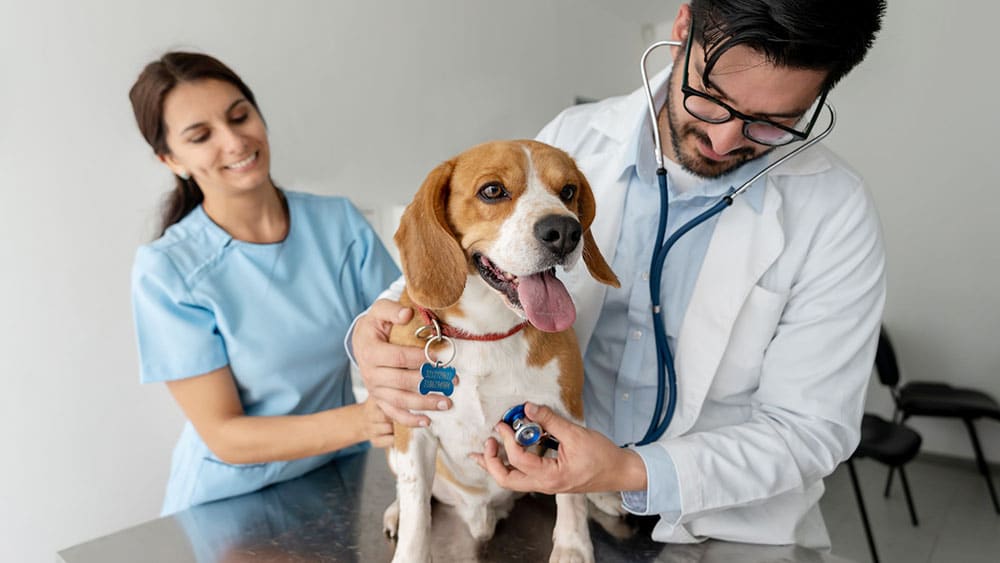Debunking Myths of Dog Meat Trade Survivors
July 26th of this year marks Joongbok, the second day of Boknal, Korea’s annual dog meat consumption tradition. While we have previously provided education and awareness on Boknal and the dog meat trade itself, today, we would like to focus on its survivors.
Being in the sphere of rescuing, rehabilitating, and re-homing dogs from what was literally a “living hell” is 110% worthwhile to us, regardless of the (sometimes literal, sometimes metaphorical) blood, sweat, and tears involved. However, not everyone agrees with our approach. While agreeing upon the unnecessary horrors of the dog meat trade, some do not believe its victims are properly suited for ‘civilian life’.
Many people have argued dog meat trade survivors have suffered so much irreversible trauma, that it is cruel and unfair to expect such a fearful, traumatized dog to try to integrate them into life as companion animals. These dogs have had little to no socialization, no concept of life beyond their wire cages, no familiarity with structure, and the list goes on. Simple tasks like going out for walks or accepting pets become so anxiety-inducing there is no quality of life. The humane choice in these circumstances, they argue, is to euthanize the dogs rather than allow them to spend their lives living in fear.
Yes, we have certainly seen this fear in our rescued dogs and we know it well. But we also know their potential. It’s why we don’t have timelines on when we will begin finding their forever homes, because they will tell us when they’re ready. And when needed, we send them to training school for a little help.
When people see anxiety and panic, we see a living soul that is trying hard to conquer their fears. We see dogs who secretly play and do zoomies when they think no one is watching. We see souls with a will and desire to live.
We will always stand by our dogs, no matter the circumstances. In many cases, with an abundance of love, patience, and advocacy, dog meat trade survivors grow to make wonderful companions.
Here are some of the most common myths about dog meat trade survivors, and real life cases featuring our alumni who effectively debunk them.
Myth #1: Dog Meat Rescues Have Suffered So Much Trauma They Can’t be Rehabilitated
Meet Wally (formally known as Gamza). When we rescued him from the Dangjin dog meat farm, he glued himself to the back of his rusty cage, terrified of what was about to happen next.
For months after his rescue, he was timid and shy. He struggled to make eye contact, never wagged his tail, would urinate himself in fear, and sat in bed all day, emotionally shut down and inconsolable.
However, with time, patience, and an abundance of love, Wally knew he was safe to be himself without any fear. There was no special training or approach, Wally figured It out all on his own.
Today, Wally is the biggest snuggle muffin there is. He loves belly rubs, snuggling with humans, playing with other dogs, greeting neighbors, going on walks and hikes, rolling around in mud or in the snow, and getting into mischief (because he knows he’s cute when he does it).
He has virtually become a whole new dog (although he’s still afraid of the dark. But hey, darkness is scary!). We are so immensely proud of him, yet we never doubted his potential. If anything, he exceeded our expectations in more ways than one.
Myth #2: Having Never Known Human Kindness or Touch, Dog Meat Trade Survivors Will Never Truly Bond with Humans
Meet Bora. She was rescued from a dog meat farm in 2016 and found her forever family in Toronto in 2017. She was bred for meat, but we believe Bora’s true purpose in life is to love through the power of snuggles.
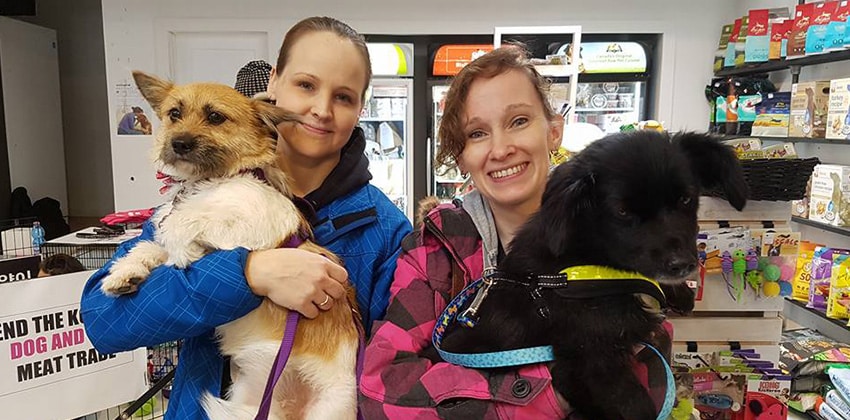
Bora loves to snuggle. She will snuggle here or there, she will snuggle anywhere! Whether with her humans, fur siblings, or stuffies, Bora does not discriminate and will cuddle all the same. She is also very intuitive in sensing when someone is in need of a cuddle and is always there to give it openly and freely.
Dog meat farm survivors are no different from “well-bred” dogs, or those raised from puppyhood, or any other sentient being for that matter. They may not have experienced love and kindness, but they instinctively know it and seek it.
Myth #3: Dog Meat Rescues Have Aggressive Tendencies As a Result of Their Trauma
Meet Hudson (formally named Dodo). The only way he would ever “attack” anyone would likely be “attacking” them with kisses. If Hudson ever got into an altercation with a fly, the fly would probably win (sorry Hudson, but it’s true).
It is true however that some do struggle with their trust in humans, although this is not exclusive to dog meat survivors. But could we really blame them when a life of cruelty at the hands of humans is all they’ve known?
Many times we equate love with affectionate acts like hugs and kisses. But even as humans, we normally don’t want physical affection from people we’ve just met, people we aren’t comfortable with, or people we have yet to become acquainted with. Loving someone, whether human or animal, means respecting boundaries.
In the vast majority of cases, “aggression” doesn’t happen out of the blue. It happens because we aren’t paying attention to or fully taking the time to understand what they are telling us. Dogs have the right to refuse consent and defend themselves when they feel threatened. It is our job as humans to listen and respect those boundaries.
Myth #4: Having Lived in Outdoor Cages, Dog Meat Rescues are Feral and Can’t Adapt to Living Indoors in a Home
Meet Fanta. She’s (an indoor) lady of leisure. She likes her beds made, sheets straightened, pillows fluffed, and blankets warmed. Would you mind dimming the lights to 25% brightness on your way out?
Puddles? No, thank you. Rolling in the grass? Excuse me, are you suggesting she was raised on a farm?! If you’re looking for Fanta, she’s likely lying belly up in her bed or has buried herself under an avalanche of blankets on the sofa.
No, Fanta didn’t immediately find her inner lady of leisure, but her adjustment period also wasn’t any different from other rescue dogs’ journeys. New and unusual experiences take time to get used to. Nothing in nature quite replicates the sounds and visuals of a TV, the rumbling of a dishwasher, or the roar of a vacuum cleaner.
As humans, we understand and can prepare ourselves for anticipated changes. Dogs have no say over their circumstances or understanding of what has happened. It makes sense they would be on high alert in a new place, and unfamiliar and unpredictable sounds or people can be especially triggering.
If there is anything “wrong” with dog meat rescues, it’s the lack of credit we humans give them for their ability to learn and adapt.
Myth #5: Dog Meat Rescues are Untrainable
Meet Kimchi. She is both the beauty and the brains!
All dogs, no matter their age or background, are capable of learning. Like humans, all dogs respond differently to different approaches and are motivated by different things. It is the human’s role to build a strong relationship with their dog and establish a healthy, trustworthy working relationship with each other.
Although her list of tricks is impressive, Kimchi, who spent her entire life in a cage with very limited experiences with the outside world, and with people who likely were cruel rather than kind, has learned so much more. More importantly, she has learned to trust in both people and herself. She has learned to push her own boundaries and try new things. She has learned to conquer her fears. She has learned how to “be a dog”.
Training goes both ways. As a human, it is our job to advocate for our dogs, manage the situation, play on their strengths, and strengthen their weaknesses.
We’re so proud of Kimchi and her fellow dog meat survivors. They inspire us. When times are tough and we think we can’t, our dogs know we can.
Myth 6: You Need a Special Skill Set to Adopt/Be a Parent of a Dog Meat Rescue.
Meet Moon. His mom was a first-time dog owner, and together they have grown, healed, laughed, and learned through their journey. And they aren’t the only first-time dog owners who have adopted meat rescues out there!
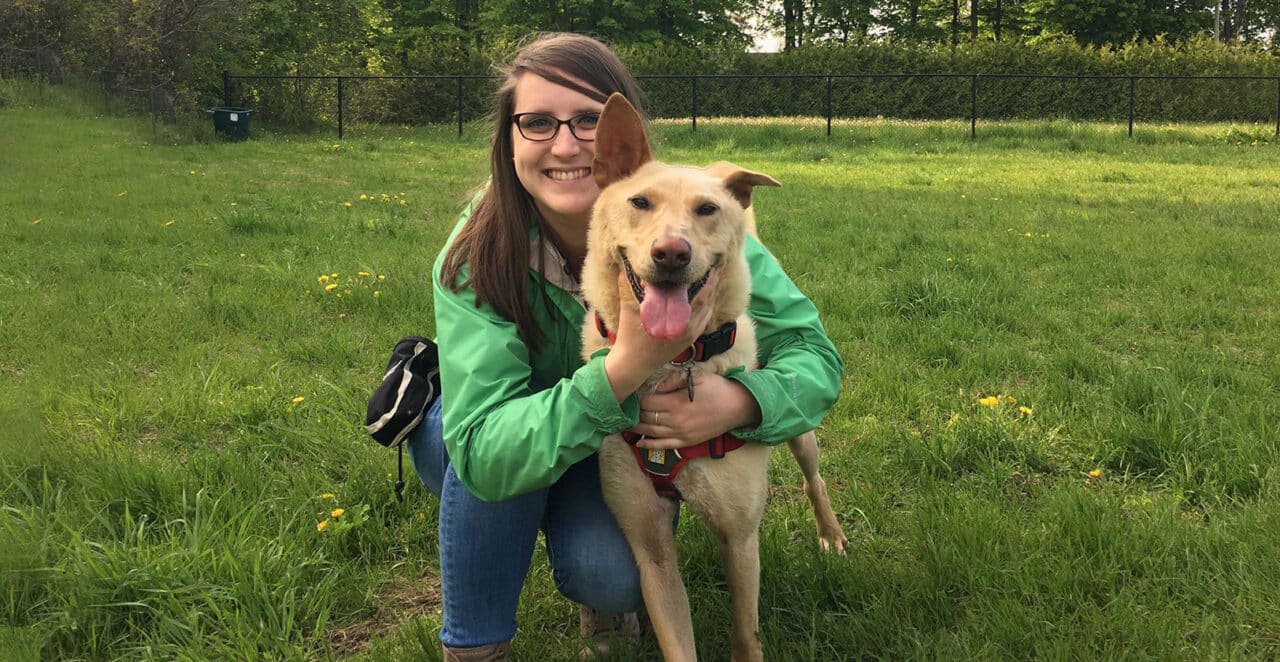
No, you do not need a special skill set. What you do need, however, is an open mind, dedication to learning, and commitment to succeed for both you and your dog.
What does this mean?
- Acknowledging your dog’s past and understanding why they react the way they do.
- Working to help your dog become the best version of themselves while also accepting their limitations.
- Understanding who your dog is, and accepting them for who they are.
- Keeping your dog safe and advocating for them.
- Focusing on your relationship and journey together, and understanding the journey is uniquely yours.
- Allowing both you and your dog to make mistakes, forgiving each other for them, and learning from them together.
- Celebrating victories together, no matter how small.
All these qualities are nothing special. They are what we strive for and practice with our families, friends, colleagues, acquaintances, strangers, and existing fur babies.
The decision to adopt a dog from any background is a heroic and commendable act. But being responsible for any living being is a commitment of its own. We can’t promise it will be easy, but we promise it will be rewarding and fulfilling.
Adopting a dog meat rescue might not be for everyone. But then again, nothing in life is “one size fits all”.
Subscribe for Updates
Get our dogs in your inbox once a month, along with our latest news and events. We never send spam, and you can opt out at any time.
